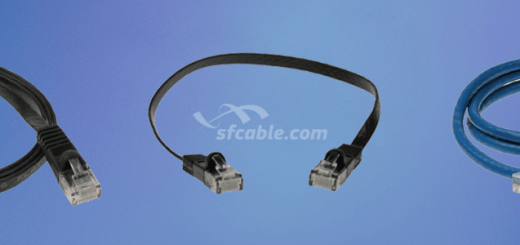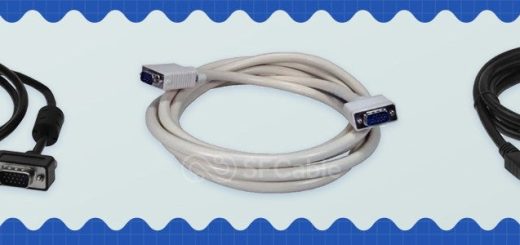Your Computer Cable Can Make or Break your Setup
The idea of what a computer is is in flux right now. But we are not entirely doing away with screens on them or attached to them yet. The future of computing may be ambient but right now, we are not there yet. Our computers still need monitors and those still have to be attached via cables.
The older connectors are DVI, S video and VGA. These are barely in use now unless the computer and monitor you are using are significantly old. The newer monitor cables are DisplayPort, HDMI, and USB C.
The switch from analog to digital happened with the DVI cable. Now that most of the industry is doing away most of the ports on their laptops, and sticking with just the USB C port, this also changes the computer cable we tend to need. USB C is gaining popularity for being the cable to rule them all. You can use it to transfer data, as a charging cable and both at the same time at extremely fast speeds.
Older cables also happen to be clunkier, and limited to single purposes, whereas the newer ones are more versatile. Let’s walk through different workstation setups and the computer cable, and hardware you can use for them:
Basic household setup:
If you need your monitor only for basic use like surfing the web, then the DisplayPort cable can do the trick. You don’t need too much speed or very high resolution. DisplayPort cable can support resolutions up to 3840 x 2160 pixels at 60 Hz refresh rate. This is more than enough for your day-to-day activities and even for watching movies up to a certain level.
This resolution is also known as Ultra High Definition and you will be able to enjoy 4K movies provided your internet can stream them at this resolution.
Video editing setup:
Editing a video frame by frame requires a monitor with a faster refresh rate. And for this, you need a computer cable that can handle this higher resolution data transfer. This may be your main monitor or you can even plug in an external monitor to see the video on a separate screen from the editing timeline.
You can use an HDMI cable when you want to connect your computer to a TV to watch a movie. Because HDMI cables can also carry audio, this simple one cable connection is sufficient for this purpose. With HDMI cables, you should keep in mind that the shorter the wire, the better the chances of getting crisp results.
Portable setup:
Now that the battery lives of laptops are decent, no one wants to be stuck at their desk. With these high-end laptops, you will only need to carry around one computer cable: USB C. Not only can you charge the laptop with it, but also connect it to an external display for both data and power.
USB C is one of the ubiquitous computer monitor cables. It has absorbed the technical qualities of DisplayPort and HDMI within its reversible and symmetrical form factor. USB C is also the port of choice on phones. Samsung is leveraging this port in its flagship line up to give a feature called Dex, which turns any monitor into an external display for your phone. You can use this for presentations, movies, or any other purpose that would require an external monitor.
With the evolution in connectivity methods and computer form factors, computer cables will continue to evolve.
It is important to choose the cable that is compatible with your monitor. If you use an older standard of the DisplayPort cable with an extremely high-resolution monitor that supports HDR10+, then you will not see the promised results. However, if you have a high end monitor with high refresh rate and your CPU has the compatible power, you can get a crisp 4K HDR10+ display with a USB C cable of the correct version.
Before you make any purchase, make sure that every component of your setup is compatible with each other. Additionally, you should always buy hardware that can support the software that will come for the next 3-4 years at the very least.
At SF Cable, we stock both legacy cables for niche requirements as well as cables of the future. For any questions regarding the compatibility of your setup, you can contact us here, and we will answer all your cable queries.


